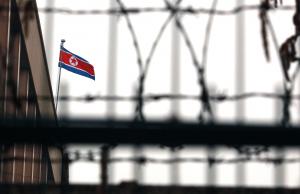VALLETTA, Malta, July 28 (UPI) — Decades-old political turmoil and controversy in the North Korean government has prompted one of its best European allies to effectively terminate workers from Pyongyang and expel them from the country — as a measure intended to stop exploitative human rights abuses.
Earlier this year, the government of Malta denied visa extensions for about 20 North Korean laborers when their work permits expired — shutting down their employment opportunities and practically forcing them to leave the country, the South Korean Yonhap News Agency reported Thursday.
Malta’s visa refusals came amid increasing calls from the international community to protect the human rights of North Korean “slave” workers abroad, who are allegedly being mistreated by Pyongyang.
Multiple news reports have claimed recently that North Korean laborers in Malta, and elsewhere, are being systematically abused — forced to work long hours and receiving only about a third of their pay. The remaining two-thirds, the claims say, go to the North Korean government to help fund its nuclear program.
“It seemed that the Maltese government did not pay much attention to such exploitation of North Koreans until media outlets in Malta began to cover related stories and calls began to rise to take responsible measures,” a South Korean official told the Korean Times Thursday on condition of anonymity.
Most of the affected workers returned to North Korea after their visas were denied earlier this year. A few, though, have defected to South Korea.
“I heard some of the North Koreans sought to land jobs at other construction companies after our management did not renew their contracts,” one Maltese executive told the Times. “They now plan to go back to Pyongyang after having difficulties in extending their work permits.”
“I’ve heard one of the defectors called an acquaintance to say he has entered an education program that helps him get accustomed to life in the South,” a Maltese resident said.
The Korean Unification Ministry said some North Korean defectors left Malta for South Korea last year, but none have followed suit this year.
“We cannot provide any further details on North Korean defectors as we are responsible for their security here,” a ministry official said.
Pyongyang has been under the international microscope for years about issues involving human rights, as well as for its often provocative nuclear weapons program. Because the recent allegations merge both issues, the international community has taken greater notice.
“I am aware that many countries are taking measures in relation to North Korean workers on their soil, like refusal to issue visas or renew them, probes into illegal stays and termination of contracts with North Korean laborers,” Korean Foreign Ministry spokesman Cho June-hyuck said in the Yonhap report.
A small, 120-square-mile nation, Malta is one of about 200 state governments worldwide that have formal diplomatic relations with North Korea. It is believed by many to be the EU nation with the best relationship with Pyongyang.
Malta is also the first member of the European body to begin deporting North Korean workers amid the allegations of abuse — but experts say it probably won’t be the last.
“There will be a domino effect in the region, given that Malta is one of the smallest nations in the EU but has taken an exemplary step for bigger neighbors to follow,” An Chan-il, head of the World Institute for North Korea Studies, said. “The EU is likely to make sure its members are not being used as sources funding North Korea’s weapons development.”
Poland has said it’s already stopped hiring North Korean workers, a practice that endured in that country for years.

COMMENTS
Please let us know if you're having issues with commenting.